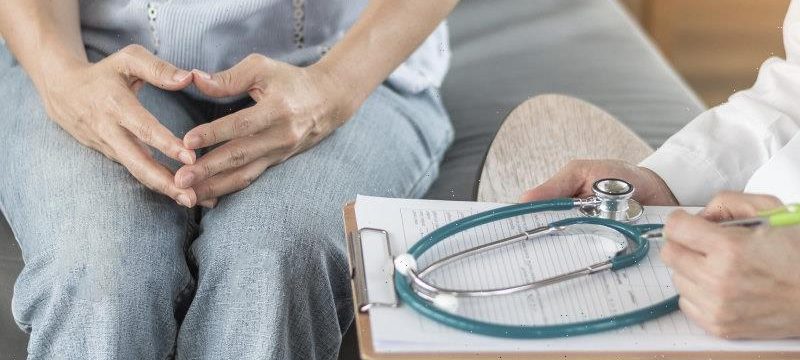For our free coronavirus pandemic coverage, learn more here.
GP appointments would be triaged by nurses through a telephone call centre under a proposal aimed at ensuring treatment for vulnerable Australians, as doctors push for more federal funding to help them treat patients with COVID-19.
The Australian Medical Association met with Health Minister Greg Hunt on Wednesday to raise concerns about general practitioners being “overrun” with patients – including those who are not unwell, but have tested positive to the coronavirus – and struggling to treat people remotely under restricted telehealth rules.
GPs are being overrun with calls as they try and deal with COVID.Credit:
AMA vice-president Chris Moy said at this point in the Omicron wave, with more than half a million Australians infected, it was “very hard” to secure a GP appointment as doctors struggled to keep up with demand.
“We’re getting slammed with phone calls,” Dr Moy said.
He said practices could not answer all the calls coming through and logistical support was needed to ensure those patients who really needed support could get it.
“We need backroom funding so we can set up, essentially, somebody to take the calls who can triage them, so we can prioritise patients,” he said. “Because the state systems aren’t working. They’re just getting overrun.”
Victoria’s triple zero service is also in crisis, The Age revealing at least seven out of 10 calls are not being answered on time during some shifts, with delays linked to up to a dozen deaths and serious injuries in the state in recent months.
GPs are demanding Medicare funding for longer telehealth appointments, along with rapid antigen testing kits and pulse oximeters – devices patients can use to measure their blood oxygen levels at home – and access to properly fit-tested N95 or P2 respirator masks, which provide a higher level of protection than surgical masks.
Royal Australian College of General Practitioners president Karen Price, who was also at the meeting, said help was needed to manage the “administrative burden” of phone calls from patients, along with “clear communication of self-care pathways” to prevent unnecessary calls.
People with chronic health conditions – including diabetes, obesity, cancer and immuno-compromised people – or severe mental illness and pregnant women should call their GP or state coronavirus helpline if they test positive to COVID-19.
Anyone else with the virus is advised to manage their symptoms at home with bed rest, taking paracetamol and ibuprofen to relieve pain and fevers, throat lozenges for a sore throat and staying hydrated with regular sips of water.
A spokesman for Mr Hunt said the minister’s meeting with doctors was “constructive” and “significant work has been undertaken to support health services for the expected increase in COVID-19 cases and to ensure patients receive care if they require it”.
GPs are still waiting for the federal government to distribute hundreds of thousands of pulse oximeters for vulnerable patients, which it ordered for the national medical stockpile.
Dr Price said the devices were helpful if used under supervision by a GP or practice nurse and could help reassure patients who were short of breath if their blood oxygen was still within a safe range, while guiding decisions to phone an ambulance or connect patients with state health services.
Pulse oximeters work by shining a light through the skin when placed on a fingertip and displaying blood oxygen saturation as a percentage alongside the pulse rate.
Oxygen transporters in blood reflect light differently depending on how much oxygen they contain.
The Therapeutic Goods Administration has warned pulse oximeters may give an inaccurate blood oxygen reading if used incorrectly or by patients with dark skin, tattoos or who are wearing nail polish.
Other factors include correct fitting of the device, certain medical conditions affecting peripheral blood flow, along with maintenance and cleaning of devices.
The National Coronavirus Helpline that provides information about COVID-19 and COVID-19 vaccines is open 24 hours a day, seven days a week on 1800 020 080.
The Morning Edition newsletter is our guide to the day’s most important and interesting stories, analysis and insights. Sign up here.
Most Viewed in Politics
From our partners
Source: Read Full Article

